Prison officers to be evicted from mobile homes near shuttered FCI Dublin
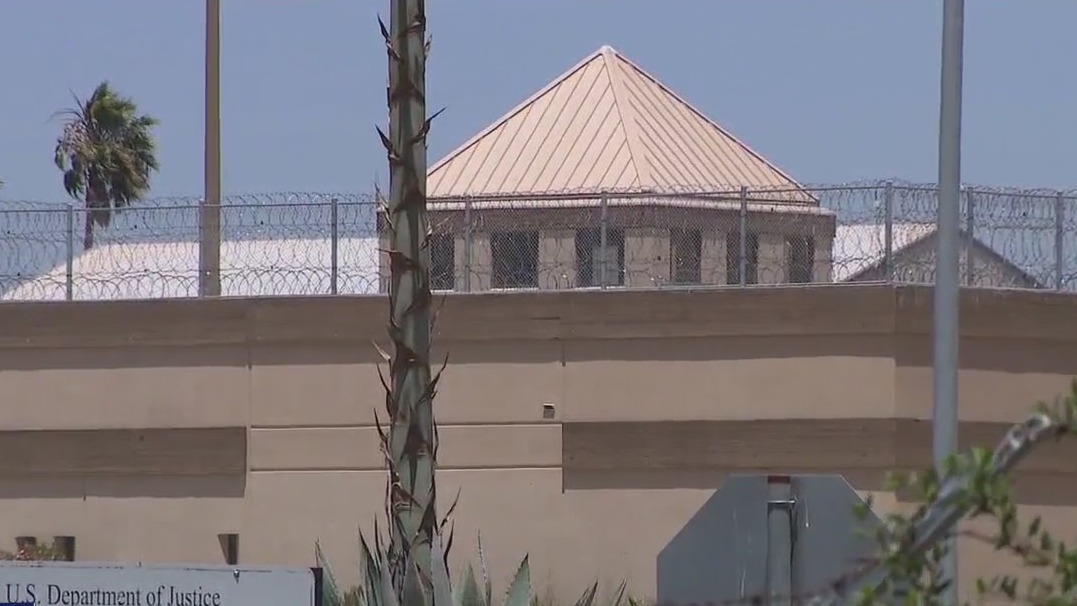
Prison officers to be evicted from mobile homes near shuttered FCI Dublin
About two dozen former FCI Dublin employees got eviction notices to leave their mobile homes by Labor Day.
DUBLIN, Calif. - About two dozen prison correctional officers who used to work at the now-shuttered women's prison in Dublin are getting evicted from their mobile home park, and if they don't move out by Labor Day, their homes will be demolished.
Eviction of mobile home dwellers
That's according to interviews and a federal compalint filed in U.S. District Court describing what the officers and their families are facing in the wake of the abrupt shutdown of FCI Dublin in April 2024.
"I have nowhere to go," Armando Sandoval, a Bureau of Prison correctional officer who used to work at FCI Dublin, told KTVU. "We feel it's punishment."
At issue are the 20 or so mobile homes along Goodfellow Avenue in Dublin sitting on federal land, technically owned by the Department of Justice, blocks away from FCI Dublin.
The low-level security prison used to house about 600 women until the Bureau of Prisons shut it down in the wake of a sex abuse scandal that the previous director said she couldn't fix. About 200 BOP employees also used to work there.
Now it sits empty. Last week, incarcerated men at another prison came to pull weeds from the front lawn.
The current acting warden, Charles Hubbard, recently sent the families living in the mobile homes eviction notices, warning them that they need to move out by Sept. 3. If they don't, the BOP will either "forcibly remove" them, demolish their homes and bill the owners for the teardown, the complaint states.
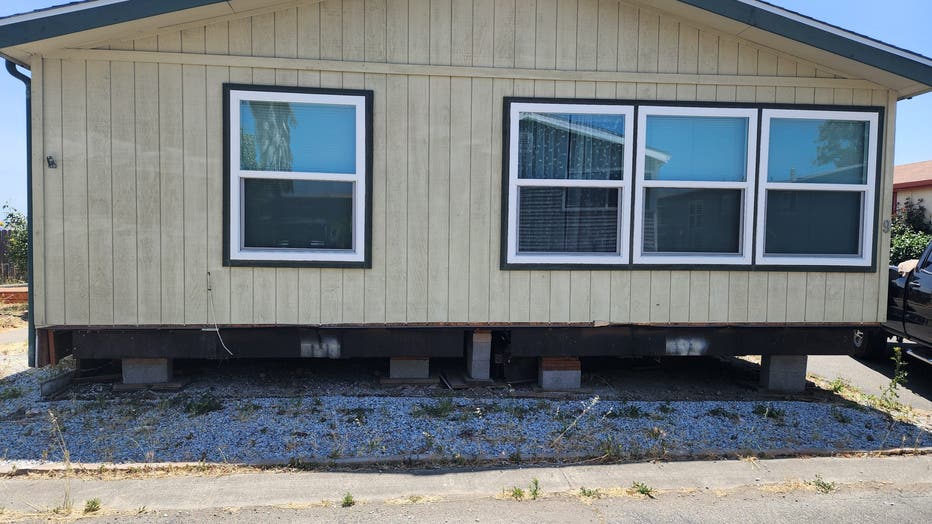
A mobile home used for FCI Dublin staffing. Photo: Armando Sandoval
No comment
The Bureau of Prisons declined to comment anymore on the officers' complaints, citing pending litigation.
In an eviction notice obtained by KTVU, however, the warden wrote that the staff housing is a "benefit and is conditional on the availability of quarters owned or leased by the government."
Because FCI Dublin is closed, the warden said he was "officially issuing the Termination of Employee Housing form."
At least one person wrote on a retired FCI Dublin employees Facebook page that the officers should have known better and that this deal was too good to be true for many years. "The inmates have been gone a minute," the person wrote. "What did they think was going to happen?"
Another person wrote: "That's what happens when you rent a space."

Goodfellow Avenue near the former FCI Dublin. Photo: Google maps
Moving homes near impossible
But the employees who live in the mobile homes say they feel deceived.
Sandoval bought his mobile home for about $90,000 in 2014 and finished paying it off in 2020.
"We own the homes, and apparently, the bureau owns the land," Sandoval said. "So that's the dispute."
And simply moving the mobile homes is either impossible or close to impossible, according to Sandoval and Monte Wilson, who filed a federal complaint on June 13 against the BOP, asking for an injunction.
"There is nowhere to move the homes to," Sandoval said.
He explained that there are age restrictions to moving the homes.
Most of the mobile home parks will only allow new mobile homes to move into their parks. And his home, along with the others, were built in 1989 and 1990, and are out of code.
"We're also on cinder blocks," he said. "And so, because of that, we can't relocate. I'm stuck."
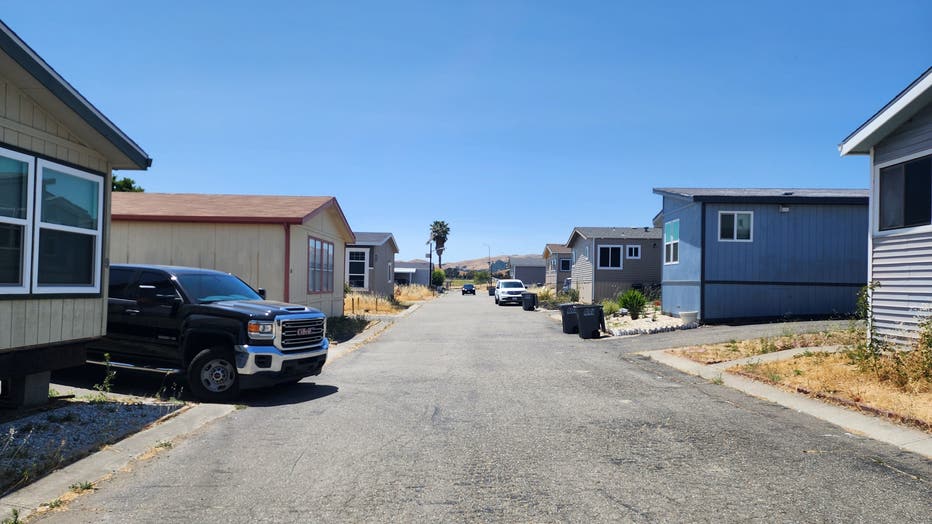
Goodfellow Avenue in Dublin is home to mobile homes used for FCI Dublin staffing. Photo: Armando Sandoval.
Technically, these mobile homes are classified as "second set," which is an industry term for a mobile home that has been moved and dismantled from the original site when delivered new from the dealer. The significance of this, Wilson alleged, is that it is not eligible for many types of federal financing.
Wilson's complaint explains that the "abrupt closure" of FCI Dublin meant the termination of all 20 mobile homes from the federal land.
He is alleging that the federal government is improperly applying what is known as Title 5, which pertains to government-owned quarters, in demanding the mobile home evictions.
That is wrong, he alleged, because he and the others own their homes, while the government owns the land.
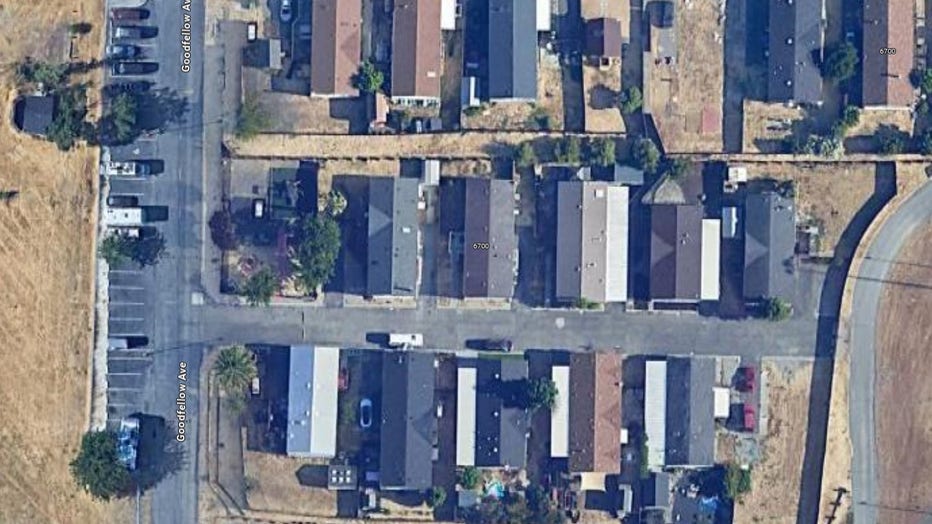
An aerial view of the mobile homes on Goodfellow Avenue near FCI Dublin. Photo: Google maps
Abrupt closure
Wilson said that the BOP acknowledged in court filings that it knew FCI Dublin would close, yet it "failed to notify its employees or take appropriate action to cease the staff housing program."
This, combined with the "failure to conduct due diligence regarding movement and placement of manufactured homes, created a situation where owners of the property could not move from its current location on federal land," his complaint states.
Wilson said that as a correctional officer and disabled veteran, being physically removed from his home would make him and his family "immediately homeless."
And simply walking away from his home would mean it would get demolished, and he would lose the entire value, while not paying his mortgage and foreclosing would result in a negative credit rating, which could possibly result in him getting fired as a federal prison officer.
Both he and Sandoval still work for the BOP.
In fact, Sandoval is bussed every day from Dublin to USP Atwater near Merced --a journey that takes between four and six hours round trip every day – to only work two or three hours at the other medium-security men's prison 100 miles away.
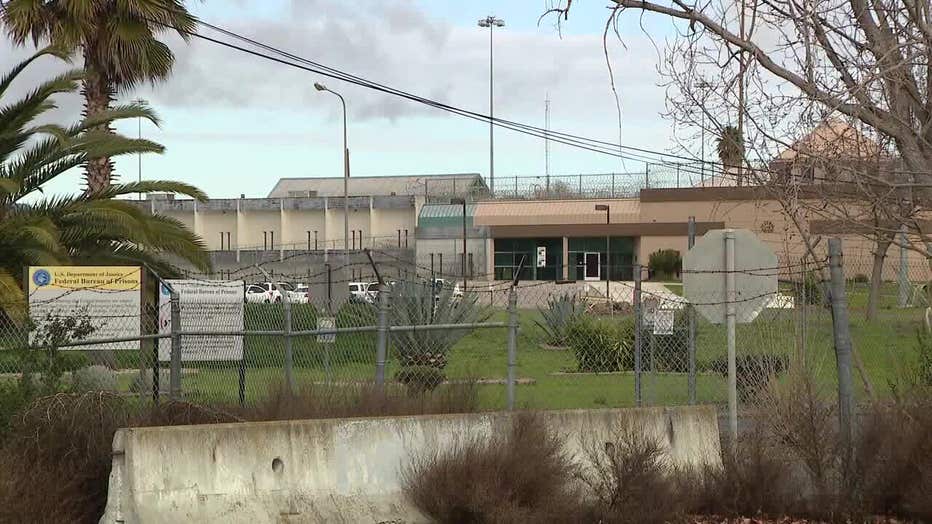
History of mobile homes
For years, the staff housing at FCI Dublin provided a symbiotic situation between the BOP and its employees in the San Francisco Bay Area, where the median home price is $1.2 million.
New employees would buy the relatively inexpensive mobile homes from officers who were leaving and rent the land from the federal government with the expectation that they could one day sell the mobile homes to another incoming employee.
That's what happened with Mallory Myers and her wife, a longtime BOP employee, who bought a mobile home in 2023 for $136,000 from a former FCI Dublin staffer after they moved to the Bay Area from Connecticut. Mallory said she pays about $800 a month in rent to the federal government.
"We were told that this was a great opportunity, that the toxicity was gone, that everything was changing," Myers said.
Though they didn't use a Realtor, Myers said no one ever disclosed to them that they might have to move off the land if the prison closed. She said there was nothing in any contract that ever stated that they would be kicked off the land.
She said she's not even sure that the BOP can force them to leave the property; she doesn't trust anything the agency says.
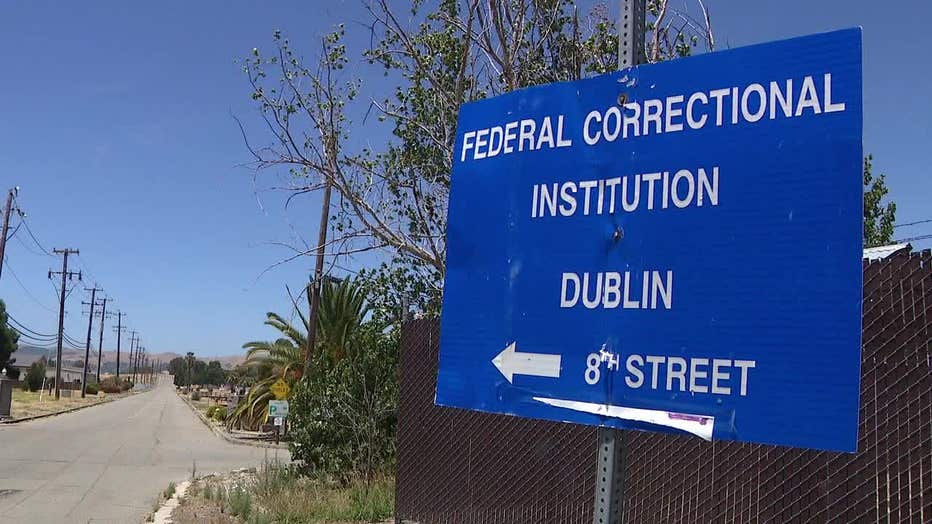
Sign to the now-closed FCI Dublin.
Pay fair market value
Wilson's complaint asks that a judge prevent the eviction from happening and order the BOP to pay him $250,000, which would cover the cost of his mobile home and relocation expenses.
Myers also said that she and her wife would simply move somewhere else if the BOP would pay them fair market value for their mobile home.
In the meantime, Sandoval said real estate "vultures" have been coming around, trying to buy their homes for a fraction of what they're worth.
One of Sandoval's friends sold her mobile home for $20,000 because her husband was relocated to Lompoc, but she's already filed a tort claim and will be heading to court.
Sandoval said he literally has no idea what he's going to do. His children are in high school. His wife is employed here.
"We're trying to figure out where we can go," he said. "I'm stuck."
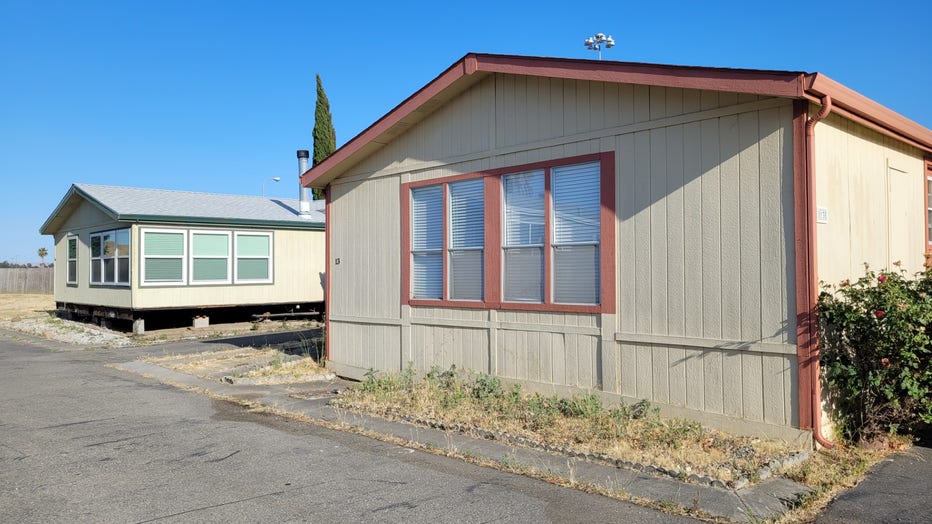
Mobile homes have provided staff housing on Goodfellow Avenue in Dublin for correctional officers. Photo: Mallory Myers

